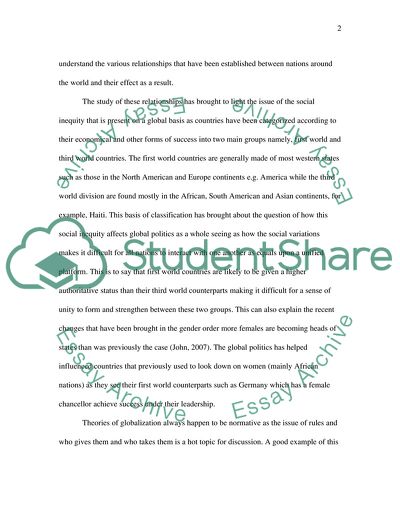Cite this document
(What is the impact of global social inequality on global politics and Essay, n.d.)
What is the impact of global social inequality on global politics and Essay. Retrieved from https://studentshare.org/sociology/1783122-what-is-the-impact-of-global-social-inequality-on-global-politics-and-how-can-it-be-addressed
What is the impact of global social inequality on global politics and Essay. Retrieved from https://studentshare.org/sociology/1783122-what-is-the-impact-of-global-social-inequality-on-global-politics-and-how-can-it-be-addressed
(What Is the Impact of Global Social Inequality on Global Politics and Essay)
What Is the Impact of Global Social Inequality on Global Politics and Essay. https://studentshare.org/sociology/1783122-what-is-the-impact-of-global-social-inequality-on-global-politics-and-how-can-it-be-addressed.
What Is the Impact of Global Social Inequality on Global Politics and Essay. https://studentshare.org/sociology/1783122-what-is-the-impact-of-global-social-inequality-on-global-politics-and-how-can-it-be-addressed.
“What Is the Impact of Global Social Inequality on Global Politics and Essay”. https://studentshare.org/sociology/1783122-what-is-the-impact-of-global-social-inequality-on-global-politics-and-how-can-it-be-addressed.


